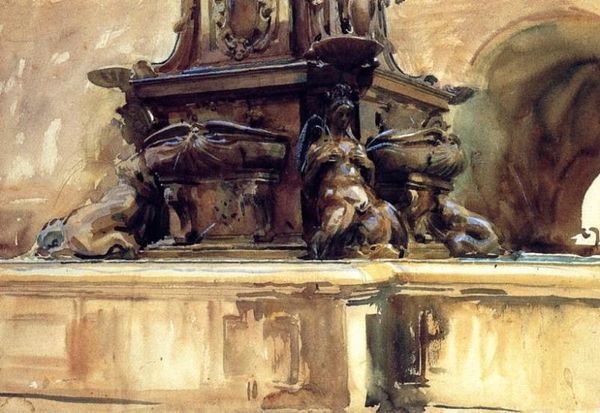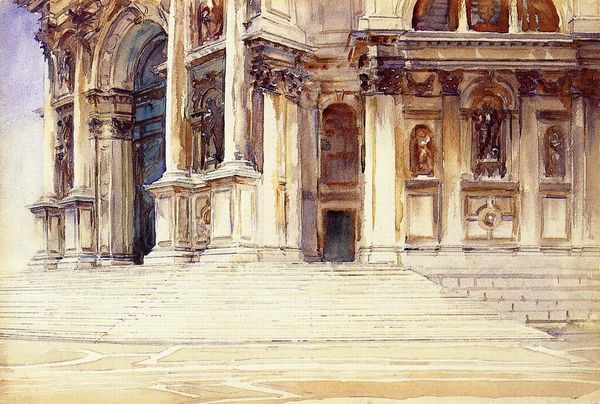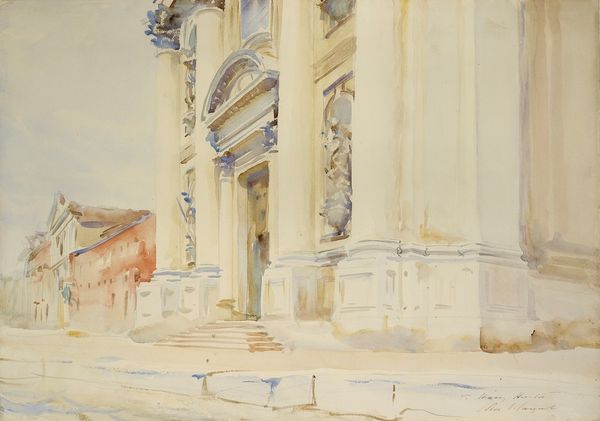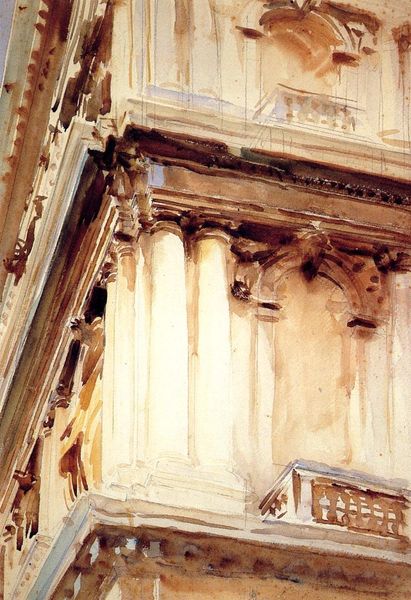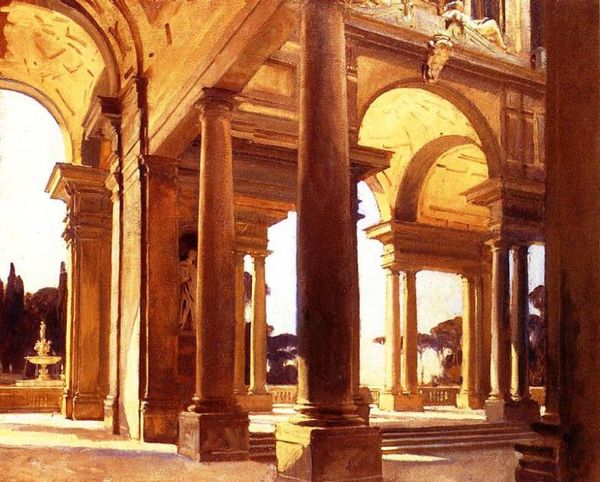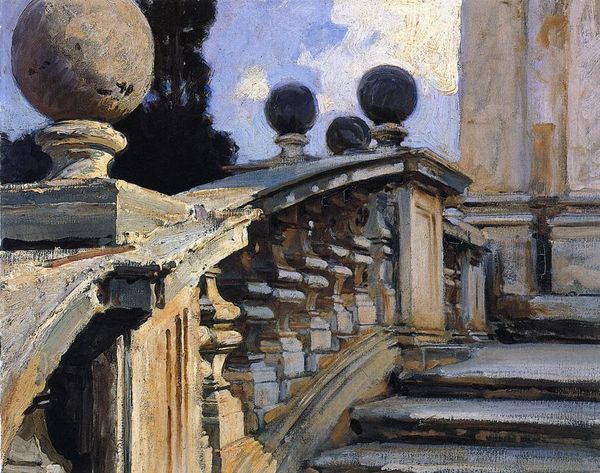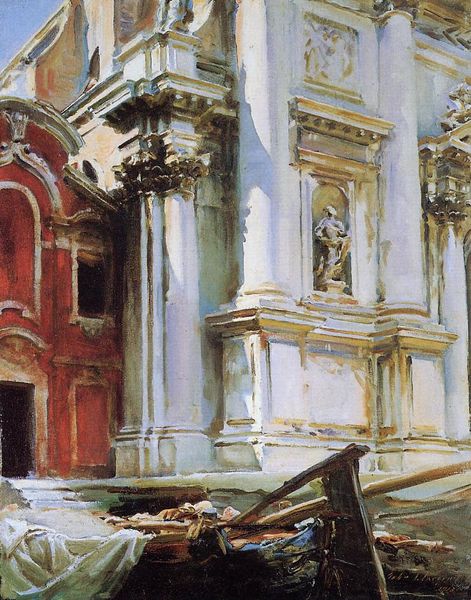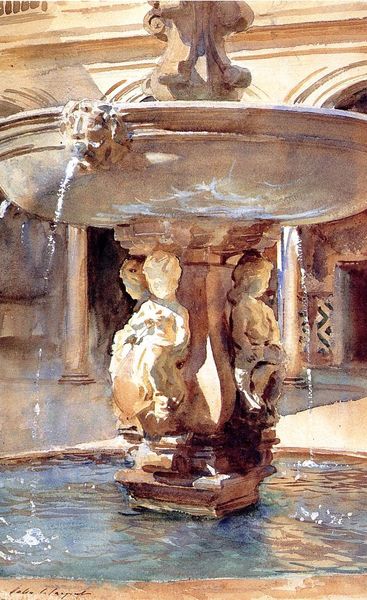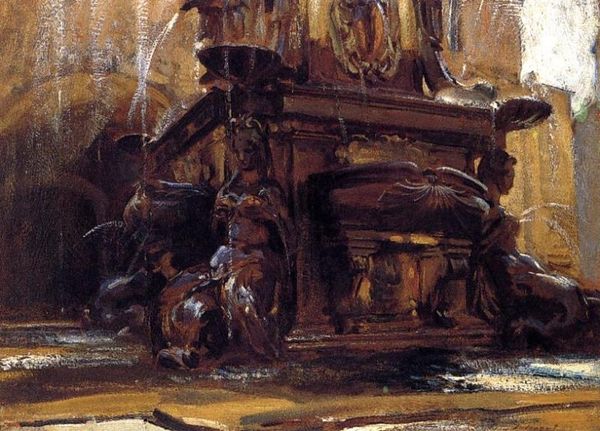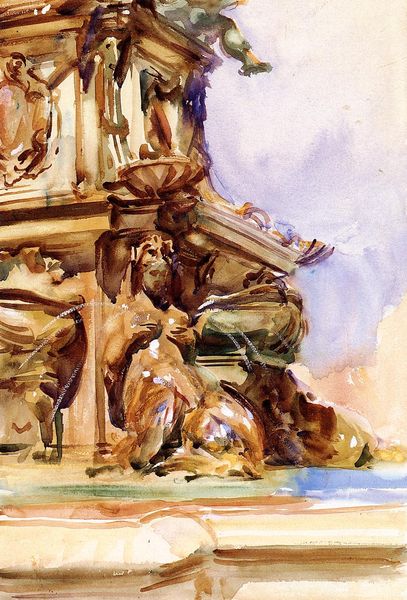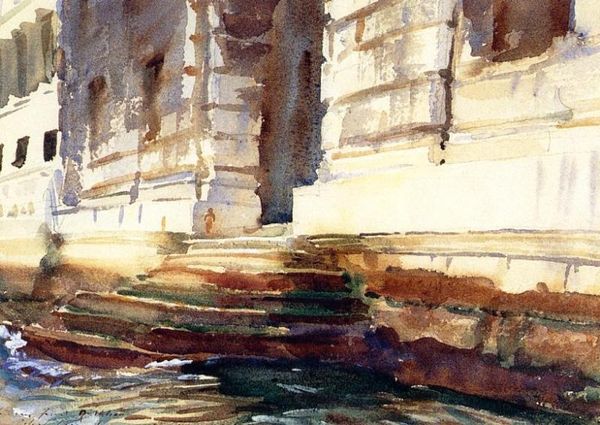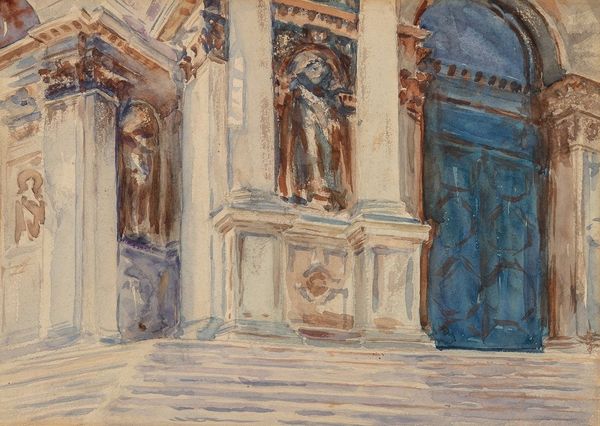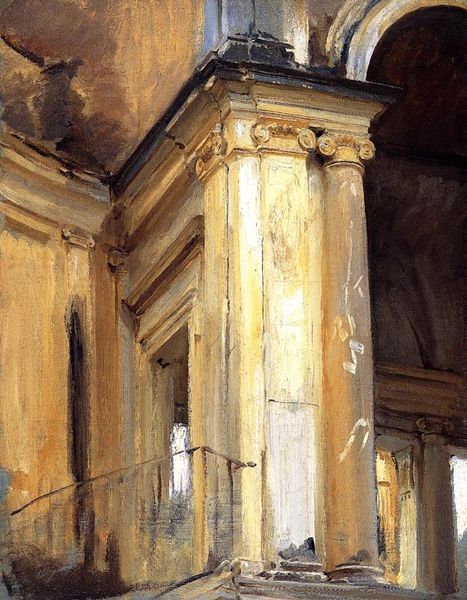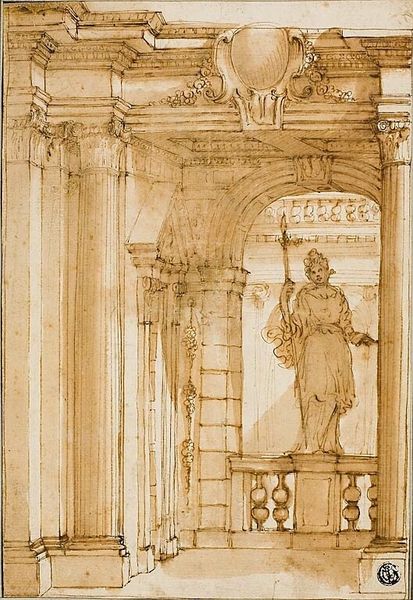
watercolor, architecture
#
neoclassicism
#
oil painting
#
watercolor
#
city scape
#
cityscape
#
architecture
Dimensions: 35.56 x 53.34 cm
Copyright: Public domain
Editor: Here we have John Singer Sargent's "Base of a Palace," a watercolor from 1904. The sunlight seems to just be kissing the cool stone. The geometry of the structure is softened by the blurring of colors, it is giving me a nostalgic atmosphere. What story does it whisper to you? Curator: Oh, it whispers of sun-drenched afternoons in grand piazzas. It's less about architectural accuracy, though he clearly understands classical form, and more about capturing the fleeting mood, isn't it? It feels unfinished, like a memory half-recalled, shimmering at the edges, all painted in these washes. It's almost more emotional than architectural, if you will. Doesn’t the immediacy of watercolor enhance this feeling? Editor: I see what you mean. The watercolor really does capture a particular mood and moment. I was stuck on trying to see it as Neoclassical architecture. Now I'm seeing the mood more clearly! The looseness almost feels impressionistic. Curator: Precisely! Sargent was a master of capturing light and atmosphere. And though rooted in classical understanding, he had this unique, almost jazzy approach. Think of him almost painting emotions *onto* the building rather than the building itself. Which then is more important – subject, or impression? Does it feel complete or merely evoke something in the distance? Editor: That really shifts my perspective! I'm now curious to know more about how other painters captured this "impression" of space at the time. Curator: Absolutely! It is very satisfying to delve into how painters interpreted buildings during this transitional period. It says something significant to look into painting as a language. Thanks for such a fresh outlook today.
Comments
No comments
Be the first to comment and join the conversation on the ultimate creative platform.
